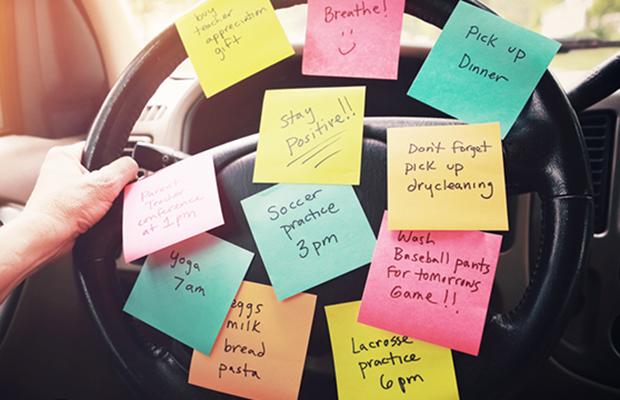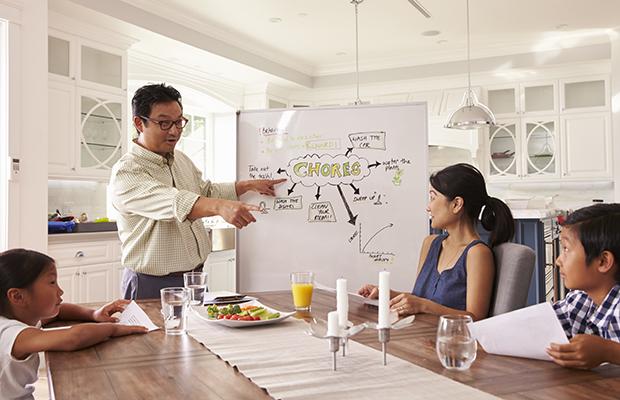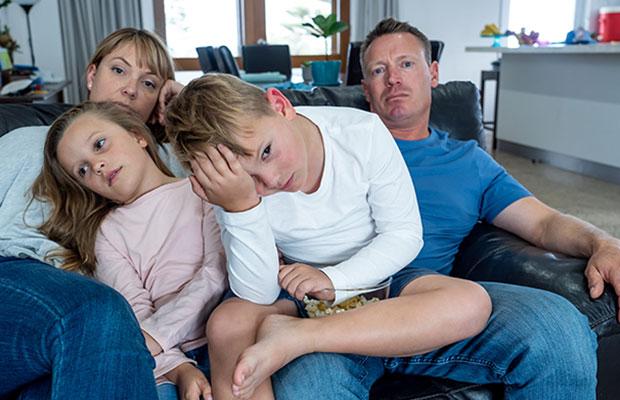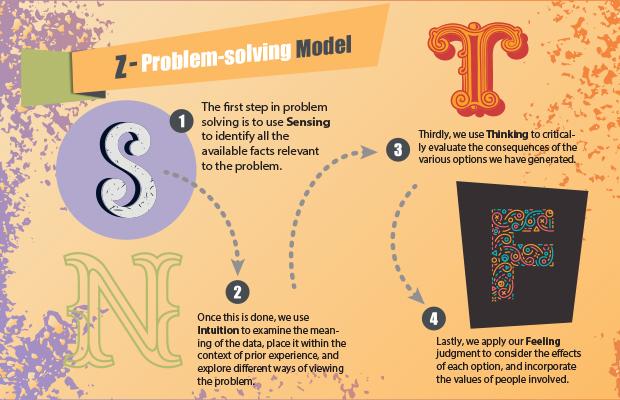It is Okay to be Me! Navigating Sibling Conflict
One challenge I had not anticipated as a new parent was learning to parent children who are very different from myself. Somehow, in my idealistic "pre-kids" life, I had anticipated that my future children would be little exact replicas of myself as a child, running around experiencing the world in the same way that I had. Surely my future children would be quiet, imaginative, and eager to please, just like I was.
But SURPRISE! My children were not, in fact, mini versions of myself. How they experience the world is entirely different from how I experience the world. And the things that excited and motivated me as a child are pretty different from the things that excite and motivate each of them.
One of the more obvious differences between myself and my first-born is the difference in how we like to make decisions. My son has a preference for Thinking, which means he is most comfortable making decisions by stepping out of a situation emotionally, considering objective, logical data. My daughter and I both have a preference for Feeling, which means we are most comfortable making decisions by stepping into a situation emotionally, considering the feelings, values, and desires of ourselves and others. Understanding this one aspect of our differences has helped clarify so many difficult situations in our household.
A few years ago, my son, who was six at the time, was coloring with my daughter, who was four. I was working in a neighboring room, and I overheard my daughter ask her big brother, "Do you like my drawing?" I could tell she was looking for approval, so I held my breath a bit as I waited for my son's response. He earnestly replied, "No, I don't like it. You colored out of the lines. You're supposed to stay in the lines. And also, I don't like the colors." Immediately, my four-year-old, who takes most things personally, burst into tears.
If I hadn't had the knowledge of type, I might have assumed my son was being mean. Why would he hurt his sister's feelings by telling her he doesn't like her artwork? I stepped into the room, though, to see not a look of malice on my son's face, but one of confusion. He did not, in fact, expect his response to cause such a reaction in his sister. He did not want or intend to hurt her with his words. So why did he respond in that way?
Recognizing by that point that my son likely had a preference for Thinking, I could understand that when my son was deciding how to respond, he automatically focused on what he saw as objectively true. He had learned somewhere along the way that "good coloring" stays in the lines. So, trying to be both honest and helpful, he passed on his wisdom to his sister and explained why he didn't like her coloring. To him, it was not, in fact, good, and gave his reasons why.
Though I understood why my son said what he said and that he did not have bad intent, it seemed he did not enjoy the outcome of his words, which was that he had made his sister upset. And I knew that his sister didn't enjoy it either! I wanted to approach this parenting moment in a way that would help him navigate a situation like this in the future. And so, a bit misguidedly, I taught my son what I thought would be most helpful at the time. First, I explained logically how his words had hurt his sister. And then I taught him a social rule to follow so that he wouldn't find himself in this situation again in the future. "Don't tell people you don't like their artwork," I said, "or you'll hurt their feelings." And I gave him a couple of other options he could have said to her instead. Then I patted myself on the back for applying type so well and preventing future drama between my kids.
My intentions were good, and they were based on what I knew and had learned about personality type thus far, but if I had it to do over again, I would take a different approach. My intent was to honor my son's differences – namely his preference for Thinking, but what I was actually doing by teaching him to follow a social rule in order to avoid hurt feelings, was trying to turn his Thinking actions into Feeling actions. I know that my values, when it comes to personality type, are to honor my children for who they are. One type preference is not better than another. So why was I trying to teach my child with a Thinking preference to use a Feeling approach? Taking a hard look at it, was I trying to make him behave exactly like I would? That vision I had of my children being mini versions of me running around; quiet, imaginative, and eager to please – does that ring a bell? Is this the message that I want to send my son – that I'm not happy with who he is, and that I'd be happier if he was more like me? A child with a Feeling preference? Certainly not!
It was time to rethink how I was dealing with situations like this between my kids. So how does one approach hurt feelings between siblings where the Thinking preference comes up against the Feeling preference in a way that honors both approaches without biasing one approach over the other? If I had to do it over again, I would handle the situation very differently, making sure to honor both of my children's contrasting ways of being. As they have grown, the word "mean" has been slung around our house a lot, and we have had a lot of conversations to truly understand that word and its meaning.
For my son, whose type preferences have since been confirmed as INTJ, I still find it appropriate and helpful to provide him with a logical explanation of why his straightforward words upset his sister. Kids with a preference for Thinking appreciate logic and analysis to help them understand a situation. However, having the insight I have now, I would skip the social rule and instead provide him with the validation that I recognize that he values the truth and there is nothing wrong with that. Also, I would spend time helping each of my children understand the differences between their approaches.
For your child who prefers Thinking:
- Explain feelings in logical terms. They will understand what happened in the situation better this way.
- Honor their way of being. You can say to them, "You like to say the truth as you see it, and that's okay!"
- Point out that their sibling's way of being is different than their own, but not better or worse. You can say, "Your sister can be sensitive and may take things personally. And that's okay too."
For my daughter, whose type preferences have since been confirmed as ISFP, talking about type preferences in an emotional moment has proved to be difficult. The word "mean" often gets used against her brother at moments like this. Talking about type differences is more of a logical conversation, and when emotions are running high, it's difficult for her to deal with logic. So, in that moment of hurt feelings, I focus on validating her emotional experience, and I save the personality type conversations for another time. In a calmer moment, we can talk about the differences between the Thinking and the Feeling approach, and the fact that she prefers an empathetic approach, focusing on the feelings of others, whereas her brother prefers an objective approach that focuses on telling the truth, as he sees it. Both can take feelings into consideration and tell the truth, but how they go about it may look quite different, with empathy or objectivity. And in these calmer moments we can really examine whether telling the truth is "mean," and generally she will agree that it's not.
For your child who prefers Feeling:
- When explaining type differences, choose a time that is not during the heightened emotional moment. They will be able to understand what happened in the situation better this way.
- Honor their way of being. You can say to them, "You like to communicate in a way that is sensitive to the feelings of others, and that's okay!"
- Point out that their sibling's way of being is different from their own, but not better or worse. You can say, "Your brother likes to communicate in a way that communicates his truth, no matter what. And that's okay too."
It has been a few years since this coloring incident. My kids are now nine and seven, respectively, and while there are still moments of hurt feelings and the word "mean" still gets thrown into the mix from time to time, I can see that the more we talk about personality type, the better they are able to understand each other and their different approaches, and the less this type of conflict seems to escalate. And I am certainly still learning as their parent, too! When we see our children's differences as just that: different, not better or worse, we can help them navigate the world more peacefully with one another while appreciating each other's natural preferences.



_thumb.png)























































.png)
_thumb.png)



_thumb.png)
_thumb.png)
_thumb.png)
.png)

.png)
.png)
.png)
.png)
